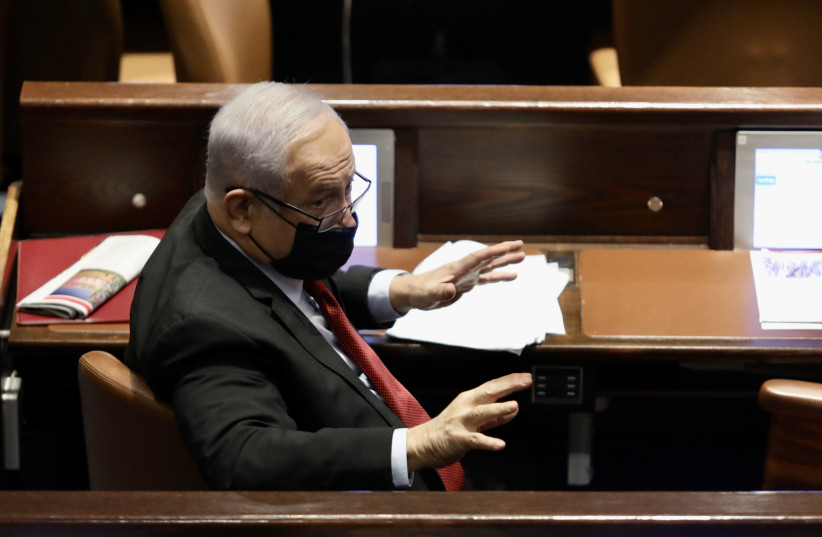The same day that opposition leader Benjamin Netanyahu’s spokesman released five statements attacking Prime Minister Naftali Bennett for his reluctance to address the Knesset during his quarantine, the Likud gave an odd reason for canceling its weekly faction meeting: COVID-19.
It was clear that the real reason the meeting was canceled on short notice was that the faction would have to decide how to handle a political hot potato: the anti-Barkat bill.
The bill, which passed earlier Monday in the Ministerial Committee on Legislation, would limit the Knesset’s only billionaire and his family to donations of NIS 100,000 a year for political activity.
“They are afraid of me,” Barkat said in a video he posted on social media. “They know why. The hacks joined together to try to stop me. I won’t be moved by such political tricks, because unlike them, I am working for [my supporters] for a [salary of a] shekel a year.”
Sources close to Barkat asked why the bill is so urgent for Justice Minister Gideon Sa’ar when Israel is facing threats from COVID-19 and Iran.

The answer is that Sa’ar wants to increase the tension in Netanyahu’s party as soon as possible, and there is no better way than to force the Likud faction to start pondering his successor.
Barkat and the other future Likud leadership candidates do not want to start running now, when Netanyahu is not going anywhere and the current government is stable. They would prefer to wait until the rotation in the Prime Minister’s Office is about to bring Alternate Prime Minister Yair Lapid to power.
Bringing the bill to a vote would also require Netanyahu himself to address his eventual departure for the first time. He has been silent about the bill, while raising a ruckus over the membership of the new Likudniks, which would only become relevant when the Likud holds primaries for its Knesset list ahead of a general election. Netanyahu’s focus on an issue that far into the sunset is intended to reinforce his message that he is here to stay.
If Netanyahu remains the glue that keeps the coalition together, Barkat is the acetone that could make the coalition come apart.
Sa’ar told Jerusalem Post editor-in-chief Yaakov Katz at the Post Conference last month that if someone else heads Likud, he would be willing to cooperate politically with the party’s new leader in the current Knesset. But Sa’ar knows that when an election is held, a new Likud leader like Barkat could finish off New Hope for good.
During the Ministerial Committee on Legislation meeting, Sa’ar mocked his current political ally, Lapid, during an argument on which coalition party is most democratic. When Meretz Minister Tamar Zandberg said that only her party and Labor are democratic, Sa’ar joked, “There was an election in Yesh Atid. Just no one ran in it.”
Lapid told his Yesh Atid faction that he is torn between contradictory feelings. He said he wanted to advance the bill because he wants to prevent buying the premiership with money, but he said it made his stomach turn to help pass a bill sponsored by MK David Amsalem, the coalition’s fiercest critic. The faction meeting ended with no decision.
But Lapid, Netanyahu, and the rest of the Knesset will have to decide soon, because Barkat is getting ready to run. And he can afford plenty of potatoes.
